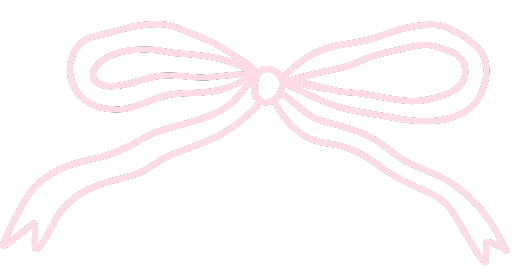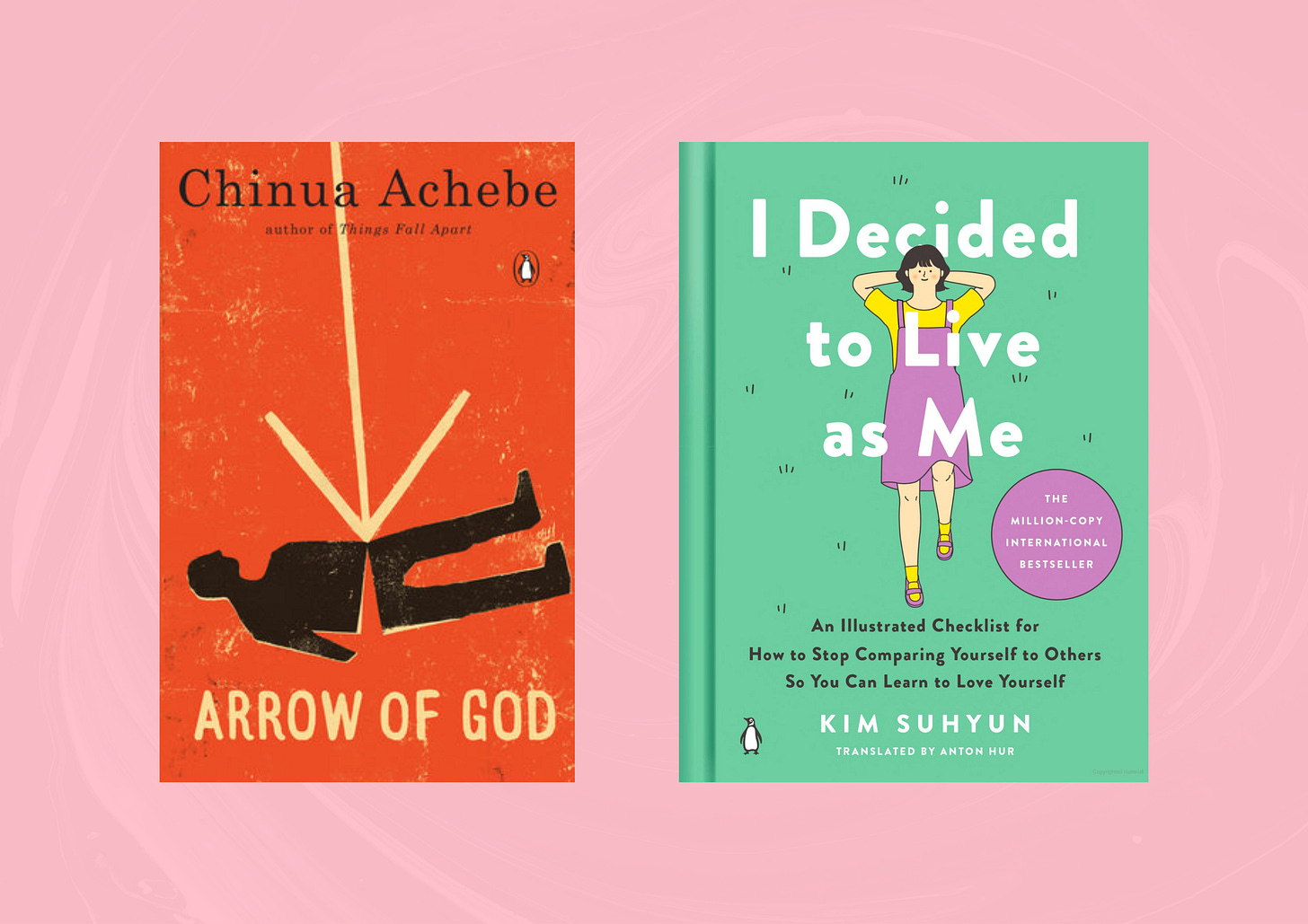June reading journey: distractions, colonial Igboland, cute covers & more
The Reading Nook #20
Welcome to The Reading Nook, where I share my reading journey and discuss books and bookish stuff. If you’re not interested in this segment of the newsletter, you can toggle off these emails in your account settings.
It’s the 20th edition of The Reading Nook! Eek! 🎉 I’ve rambled about books to you 20 times!
What kind of reading month was it?
It was a slow reading month, not from a lack of desire to read, but from distractions and commitments that sprouted here and there. I finally got into the writing fellowship I wrote about getting rejected from twice here (yay!). So that has kept me occupied, and I’ve been performing auntyhood and free childcare more than usual. So, busyness and exhaustion took a toll on my reading this month. However, it didn’t start this way, and for my first read of the month, I savoured and immersed myself in it. I completed two books and DNF’d one.
June Reads
Arrow of God by Chinua Achebe (1964)
A couple of years back, I won a giveaway from the Republic Journal where I got paperback copies of the Things Fall Apart trilogy, Anthills of the Savannah and the Chinua Achebe magazine issue. In 2021, I tried reading Arrow of God but DNF’d it. I picked it up again this month.
Arrow of God is set in 1920s colonial Igboland. It follows Ezeulu, the priest of Ulu – the overall deity of the six villages of Umuaro – as he grapples with the changes a new religion and colonialism bring.
The book is narrated with an omniscient third-person point of view from the perspective of Ezeulu and also two English government officials: Winterbottom (or Wintabota, as the villagers said) and Tom Clarke.
This book wasn’t what I expected. I came in believing I’d find a clear-cut narrative with no meandering, where point A led to point B and so on till the end. But the narrative was more fragmented than I expected in that it captured the minutiae of everyday life in Umuaro. The pacing of the novel slowed down as we glimpsed household drama, inane sibling squabbles, neighbourhood gossip, village inside jokes, jealousy and bad blood between title holders, power tussles, etc. We are immersed in the lives (and drama! There was so much drama) of the villagers, and it was such a fascinating experience.
Aside from that, I also didn’t expect humour from the book. Many people hear Achebe and expect a certain stiffness, but I found myself laughing many times. From Ezeulu constantly telling people, ‘if you don’t like it, come and jump on my back’ when they disagreed with him, to a crowd booing and snickering at performers who made blunders during festivals, there was a humour that lay waiting at many corners of the book.
Achebe wrote such vivid descriptions, especially of festivals and rituals. The masquerades, the music, the fear or excitement that gripped the villagers – everything seemed to come to life.
I was also amazed by his ability to write such contrasting perspectives between the villagers and the colonial administrators. The shift in tone when reading the perspective of the colonisers was jarring. They were condescending, pompous, and self-righteous (and kept using the phrase ‘backwards race’).
Reading this, I thought, this might be what those Nollywood Igbo films on Africa Magic try to achieve but fail at because of poor scripts, no plot or developed characters, and inaccurate depictions of the colonial (or precolonial) era.
Of course, I can’t fail to acknowledge how irksome it was to read all the patriarchal traditions and beliefs that belittled women. But I liked getting a peek into how life looked then, learning about the different market days, the difference between a priest and a medicine man, and reading the many Igbo proverbs that punctuated their speech.
This was my first time annotating a book, and it was so much fun! Here are some quotes from the book I liked:
But life alone is not enough. May we have the thing with which to live it well. For there is a kind of slow and weary life which is worse than death.
It is the fear of causing offence that makes men swallow poison.
I Decided to Live as Me (An Illustrated Checklist for How to Stop Comparing Yourself to Others So You Can Learn to Love Yourself) by Kim Suhyun translated by Anton Hur (2024)
I 100% picked up this book because of how cute the cover was. Of course, the title appealed to me, as I am forever searching for ways to stop comparing myself to others and accept myself as I am.
The book is written in small, digestible chapters with cute little illustrations after each one. The author creates checklists and tips on how to live like yourself, live with self-respect, not be caught by anxiety, live a good and meaningful life, live together with other people, etc.
Kim deeply criticises South Korean social and economic standards as well as its emphasis on community to the detriment of the individual. And while I’ve gotten a glimpse into South Koreans’ strange obsessions with academic excellence, attending the top universities, being ultra-rich, etc., through K-dramas, this book reinforced the absurdity of it all. There were some things the author said that I was shocked needed to be said. Like, you’re not a horrible person for not asking random people how much money they earn before you decide if you should befriend them or for seeing your classmates as friends and not competitors whose throats you have to slit in the middle of the night (these are in my own words).
But the book was a reminder that, regardless of the prevalent culture of a certain place, there will always be people who go against the grain, like the author. It also reminded me of other South Korean media I’ve consumed that reinforced this idea, like the show Summer Strike and the book Welcome to the Hyunam-dong Bookshop by Hwang Bo-reum.
My interest and connection to this book were like a pendulum. Sometimes, I’d intensely resonate with something or it’d reveal a new idea I had never thought of, and other times, I’d feel bored or as if what I read didn’t carry weight because at times, the book came across as simplistic in its approach, as if life were as easy as the author suggested. Although I liked that eventually, the author emphasised that while individuality is important, we all have a role to play in creating a better world, no matter how small. We shouldn’t turn away at the sight of injustice. We’re all a part of a whole.
All in all, it was a short, cute little read.
Here are some quotes (I got many quotes) I liked:
When only numbers are sought, true value is forgotten.
True self-discovery is not trying to make yourself into something special but realizing you were already special all along.
But sadness is natural. If you eliminate bathrooms in the Palace of Versailles just because they don’t look nice, don’t be surprised if people defecate in public and even, well, step in it from time to time.
It’s better to be sad once in a while. Just as too many clear days can bring on drought, we need the rains of sadness for the sake of our personal growth. We should try to be happy, of course, and I sincerely wish for your happiness. But the purpose of life will always be life itself, not happiness.
you need time and continuous effort to effect real change, even if it means you have to backtrack or you feel like you’re running in place. That’s just the way it is.
Unexpected problems will always pop up in life. Many of them have no immediate solution.
I’m currently reading: Intimacies by Katie Kitamura
I hope you enjoyed this. I would love love love to hear from you, so talk to me in the comments or by replying to this email. Recently, I’ve been listening to my parasocial bestie (Lorde)’s new album.
❀ What have you been up to?
❀ What have you been reading?
❀ What was the last book you read that pleasantly surprised you?
Last month, I forgot to tell you I wrote about finding your pace in life for
’ What is life teaching you at the moment? Series. She said reading the piece made her feel like ‘i was at a cafe, basking in the parisian sun, knowing everything will be okay in the end.’ You can read it here and tell me what you think:








Congratulations on the residency Fatima! See ? No need to panic lol Recently I was told I was selected to receive an art award by this art foundation and it has also been after the 3rd application. May our perseverance always bear their fruits.
Congratulations on getting into the writing fellowship 👏👏👏